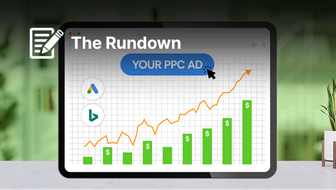Hey all, you cool cats and kittens. It’s time for another round of Ask an SEO.
Today’s question comes from Shubham in Telangana.
I’m going to paraphrase the question here to make it applicable to more than just the one example given, but basically Shubham’s question is about ugly URLs.
Why is a site with very ugly URLs ranking above mine?
What Is an Ugly URL?
First things first, what exactly is an ugly URL?
Google gives us lots of examples of ugly URLs and URLs that could cause some issues.
If something in the URL is causing Google to have difficulty crawling it, that can be a real problem.
See the above link for examples of that.
But as long as Google (and Bing!) can crawl a URL, it doesn’t really matter if it’s “ugly” to users.
While keywords in URLs, and URLs themselves might be one of the hundreds of ranking factors, they aren’t a really strong ranking factor.
Creating a URL with high-value keywords is really easy, and anybody can do it without much effort, so it would make sense not to rely too strongly on it for ranking results.
The reason the results with ugly URLs rank higher is likely because it has lots of other strong signals like relevant content, links, etc.
As long as the search engines can crawl it, they’ll rank it – even if it doesn’t follow best practices.
That doesn’t mean you shouldn’t follow best practices.
Many SEOs will take any tiny bit of help they can get, and URLs are no exception.
Some Tips for URLs
Keep URLs Short & Simple
URL length is not a ranking factor.
But this helps users easily remember them, type them, etc.
Avoid Using Too Many Parameters
If you have parameters that don’t change the content, make sure your canonical tags are set up well.
Try to Use Relevant Keywords Where Possible
But don’t go out of your way to add them in if they aren’t necessary.
Avoid Using Fragments (#) Whenever Possible
Google ignores everything after the #.
And remember, sometimes you need ugly URLs – like when adding unique identifiers for news search – but that’s a topic for another post.
Editor’s note: Ask an SEO is a weekly SEO advice column written by some of the industry’s top SEO experts, who have been hand-picked by Search Engine Journal. Got a question about SEO? Fill out our form. You might see your answer in the next #AskanSEO post!
More Resources:





